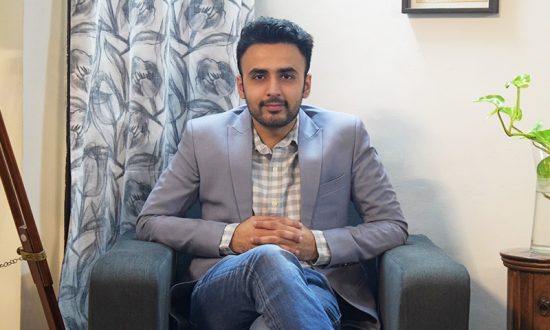Born in a family of fair traders from Delhi, it was not a tough call for Mr. Leo Shastri to follow the family’s rich legacy as he always feels strongly for injustice, prejudice and poverty. After studying filmmaking and working on various small projects in different industries like education and entertainment, Mr. Shastri finally decided to go back to his roots and dedicate his near
future to the Usha Exim Private Limited. With the aim of reaching new heights and creating work opportunities for the economically disadvantaged section of the society, he joined the certified fair trade multi-product export organization as a Director of Operations & Strategy.
An avid fair trader, his goal as an entrepreneur is to eradicate poverty and unfair practices in society through alternative trade methods. He would like to believe in the motto ‘Entrepreneur for a cause’. In his free time, he travels from village to village to explore the human diversities across India and understand the rural mindset. His initiatives made him and his company win many laurels which include India 500 Quality Leader Award 2020 for Quality Excellence and India 5000 Best MSME Award 2020 for Quality Excellence.
The ongoing coronavirus pandemic has impacted all the industries across the globe but the worst affected industry has been the art and handicraft world. Many of the art lovers and stores have not only pulled back due to financial uncertainty but also galleries have shut doors and events such as art fairs have been canceled. Though everyone is spending more time at home and renovating their houses and workplaces, the very least are redecorating them.
So, now the most pertinent question which arises is where has this left artists, gallery owners, handicraft exporters and art fair organizers? As it has almost been 11 months now, everyone has learnt how to adjust in the ‘new normal’. Many are seeing this as a good time for them to explore their abilities and skills to bring out the best for them and the community. The entry of many e-commerce players and conducting online melas in order to revive the industry and generating income for the weavers have raised hopes of empowering artisans across the country, giving them once again the privilege of selling their artifacts in the unprecedented times when the expenditure on such items has gone minimal.
Preservation of the Indian weaves
India’s crafts and textiles are considered as the pride of the nation. But now, our hard-working weavers are struggling hard for their survival and at the same time with the new age dynamics of the market. As the prints, patterns and techniques of weaving change within the few kilometers in our country, we need to preserve it so that these ancient techniques don’t get lost in the annals of time. In order to do that, the younger generation has to take the lead. They have to be encouraged by the government and local authorities to take up weaving as a sustainable earning avenue. They should have faith in this career prospect as well and create opportunities for the limited infrastructure upgradation.
Expanding skills: Preparing for long term
Covid-19 has no doubt disproportionately affected the weavers and artisans community. Organisations and NGOs need to step up to address the various short term concerns. The textile and handicraft partners working in this sector should help artisans to shift their business to PPE model, generating some income opportunity for them. It is also essential to work on long term concerns like building resilience beyond wages so that they can sustain themselves in the world during and post Covid. Resilience can be built by focusing on expanding the skills of the artisans and working on developing other less intricate products which are in need at that particular period of time. They should learn to do most of the services in-house like dyeing of fabrics to become more self-sufficient.
Keep the artisans and weavers spirits up
In such unprecedented times, it is pivotal to build the trust with the artisans. It will help all of us to sustain our relationships during a pandemic. They should be counseled regularly so that they can share their concerns. More such meetings should be organised on whatsapp calls with them. At the same time, consumer’s mindsets should need to be changed. When they see anything ‘homemade’ the value of the product decreases and they feel they can also make it on their own. Handicraft has intangible values attached to it like a community learning, history, art and culture.


